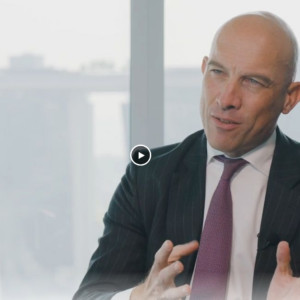UBP using direct deals to gain access to private markets

Client portfolios in private assets should be split between real estate, infrastructure, private debt and private equity, believes Brice Thionnet, global head of private markets at UBP
Increased volatility in public equity markets since the collapse of Silicon Valley Bank and the forced buyout of Credit Suisse by deadly rival UBS has left those firms with exposure to private assets in particularly good spirits.
Private banks, and typically those in the Swiss heartlands, are being asked by clients whether they can provide investments which provide a less bumpy ride than those following the fortunes of the major local banking stocks. “I think it’s a valid question, but it’s one that we’ve asked ourselves – and indeed everyone should be asking themselves – for the last decade, not just the last few days and weeks,” says Brice Thionnet, global head of private markets at UBP in Geneva, who launched the bank’s Direct Investment Group back in 2015, to improve yields for his investors.
Tiring work
Before then, bank clients could access funds as co-investors. But Mr Thionnet wanted to go one better. “We were basically circumventing the funds story and giving clients access to the underlying investments,” he says. “We are opening up the black box and allowing them to see the deals.”
And there have been plenty of these direct deals, numbering more than 50 in an eight-year period, raising equity assets of $4bn. This whole process, ventures Mr Thionnet, is much more exhausting than working in the funds world. “It’s extremely tiring, because each and every time, you need to go and see all your clients,” says Mr Thionnet. “You have to explain the merits of each and every deal, so it’s very different to managing a discretionary portfolio and then once in a while they say ‘yes’.”
Client portfolios in private assets should be “fractured” between four different sub-classes – real estate, infrastructure, private debt and private equity – believes Mr Thionnet. Alternative assets, he says, have come into their own due to the changing nature of markets and their constituent companies. “When you see that more than 40 per cent of listed stocks in the US have just vanished over the last 20 years, you realise there are now so many different routes to invest in the economy that are actually in the private assets space.”
And there is a matter of both pride and reputation to protect in the tight-knit wealth management space. “Geneva is a small town and Switzerland a small country,” he says. “Everyone knows each other, so I am not here to back investments that might later prove problematic.”
Investments, says Mr Thionnet, should match the everyday plans of citizens across Europe and Asia. “If you look at the huge Asian countries like China, which have invested for decades in infrastructure and transportation, in highways, airports and trains, we are lagging behind this in what we call the ‘Western world’ and badly need to invest.”
Real estate
Real estate is another major destination for private money, he adds, with a need for renovating residential buildings – or so-called ‘retrofitting’ – along environmental, social and governance (ESG) criteria. Rather than following the major ‘megatrends’ which consultants say will shape the future of portfolio management, Mr Thionnet prefers to address more local, practical opportunities within his asset specialisation. “One is the financing of affordable private housing in the UK, where there is a huge shortage,” he adds, with rising divorce statistics and refugee numbers both contributing to demand for affordable accommodation. “By financing developers backed by the state, we can help large numbers of the working population such as nurses and policemen,” he says.
These types of private assets merit 15 to 20 per cent allocations in diversified portfolios, suggests Mr Thionnet, who talks down any problems of a liquidity crisis enveloping alternative investments, similar to 2008. “We’re not here faking liquidity, are we?” he asks. “These are non-liquid investments. This is written bold and clear at the forefront of investment into private markets. If you want to exit, you have to accept a big loss.”
Conversely, a term of 10 to 12 years means investors are not forced to sell assets at a loss during a tough period, such as the Covid crisis of 2020 to 2021, and are able to ride out the rough patches. For Mr Thionnet, balancing the twin challenges of liquidity and volatility remains the key to long-term success.





